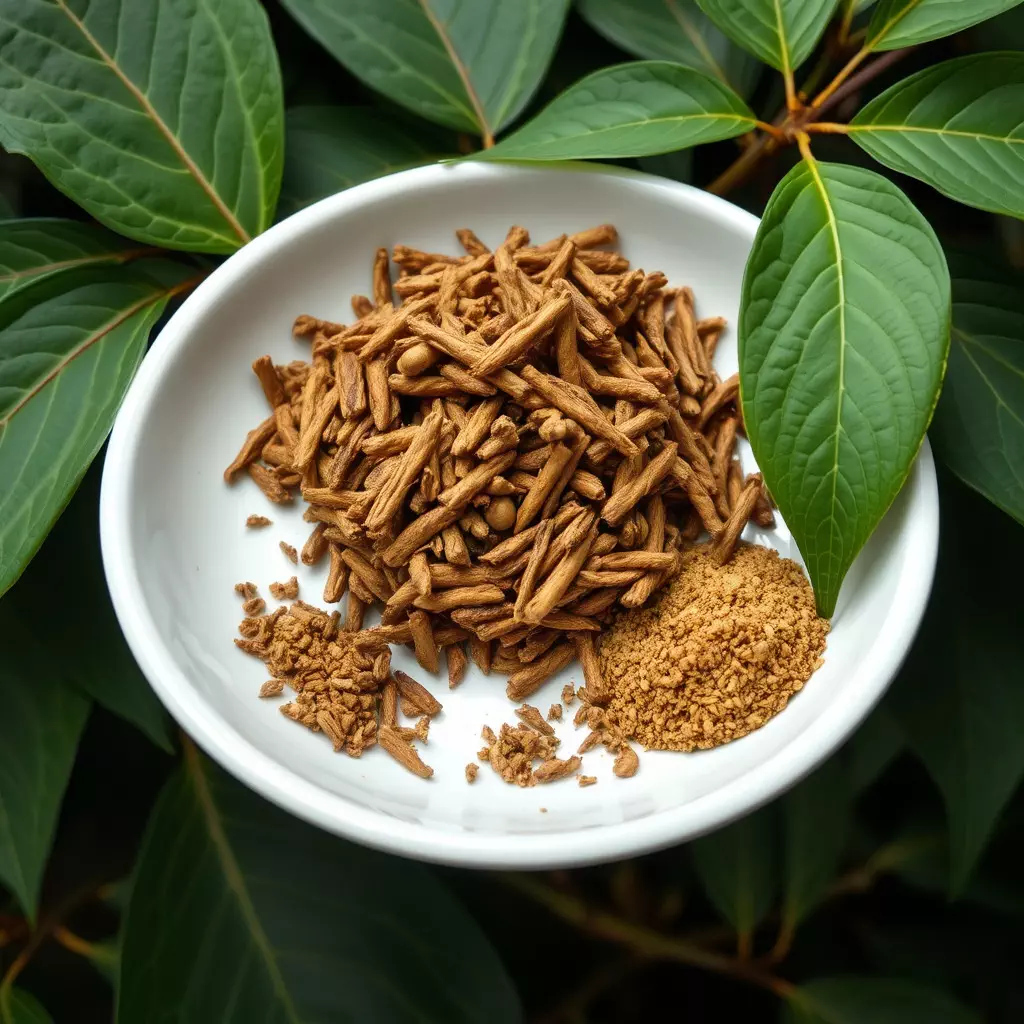Yellow Vein Kratom Powder, derived from the Mitragyna speciosa tree, has become a popular choice in Arizona for its unique blend of stimulating and relaxing effects. It's known to offer users a sense of euphoria, increased energy, stress relief, and focus without the jitteriness associated with some stimulants. In Arizona's diverse landscapes, from the Sonoran Desert to cities like Phoenix and Tucson, residents have been exploring its potential benefits. The substance is currently legal in Arizona under state regulations, overseen by the Arizona Department of Health Services, which mandates proper labeling and disclaimers on products. However, it's subject to federal regulation as well, where it's not classified as a Schedule I substance, reflecting ongoing legislative discussions and public opinion that influence its legal status. It's crucial for consumers to stay updated on both state and federal laws regarding kratom legality, as these can change frequently. Those interested in using Yellow Vein Kratom should verify its current legal status in Arizona by consulting local authorities or updated legislation, and always procure it from reputable sources that comply with regulations to ensure safety and quality. Remember, the legal landscape of kratom is dynamic, making informed consumption essential for anyone considering its use.
Exploring the nuanced effects and legal standings of Yellow Vein Kratom Powder in Arizona, this article sheds light on its prevalence and usage within the state. We delve into the intricacies of Kratom legality, specifically addressing the question “Is Kratom legal in Arizona?” Additionally, we provide a detailed guide on the various strains of Yellow Vein Kratom, their applications, and what consumers need to know before use. Whether you’re curious about its effects or navigating the complex legal landscape, this comprehensive overview equips you with essential insights.
- Unraveling the Effects and Legality of Yellow Vein Kratom Powder in Arizona
- Comprehensive Guide to Yellow Vein Kratom Powder: Strains, Uses, and Consumer Considerations
- Navigating the Legal Status of Kratom Products in Arizona with a Focus on Yellow Vein Varieties
Unraveling the Effects and Legality of Yellow Vein Kratom Powder in Arizona

Yellow Vein Kratom Powder, derived from the Mitragyna speciosa tree, has garnered attention for its unique alkaloid profile that offers a distinct set of effects compared to other kratom strains. In Arizona, where the landscape ranges from the Sonoran Desert to urban centers like Phoenix and Tucson, residents are increasingly exploring the potential benefits of kratom products. The effects of Yellow Vein Kratom are often reported to be a harmonious blend of the stimulating properties found in White Vein and the calming attributes typical of Red Vein varieties. Users often report feelings of euphoria and heightened energy without the jitteriness associated with caffeine, coupled with stress relief and improved focus. These effects make it a popular choice for those seeking to enhance their daytime productivity or to find relief from mild discomfort.
When considering the legal status of Yellow Vein Kratom Powder in Arizona, it’s crucial to understand the evolving regulatory environment. As of recent legislation, kratom is legal at the federal level, with the DEA having previously classified it as a Schedule I substance before retracting this decision due to public outcry and lack of scientific consensus on its effects. On a state level, Arizona has its own stance on kratom’s legality. The Arizona Department of Health Services regulates kratom alongside other dietary supplements, requiring vendors to label their products appropriately and ensuring they are not marketed as “safe to use” without the necessary disclaimers. Users in Arizona must stay informed as state laws can change, and it’s always advisable to verify the current legal status directly with local authorities or through updated legislation before purchasing or consuming kratom products.
Comprehensive Guide to Yellow Vein Kratom Powder: Strains, Uses, and Consumer Considerations

Yellow Vein Kratom Powder, derived from the leaves of Mitragyna speciosa, is a botanical alkaloid that has gained popularity for its unique effects, distinct from those of red or green vein kratom. This comprehensive guide aims to elucidate the specifics of yellow vein kratom, including its various strains, potential uses, and important consumer considerations. When exploring the legality of kratom products, it’s crucial for consumers to verify local laws as they can vary significantly by state. For instance, in Arizona, kratom is legal, allowing residents to purchase and use kratom powders, including yellow vein variants.
The yellow vein strains of kratom are typically produced through a combination of strain type and drying process, which affects both the color and the alkaloid profile of the powder. Some popular yellow vein strains include Yellow Borneo, Yellow Vietnam, and Yellow Maeng Da. These strains are known for their balanced effects, offering a blend of stimulating and relaxing properties that can provide an uplifting sense of well-being without the sedative effects often associated with red vein strains. Consumers considering yellow vein kratom should pay attention to dosage and individual sensitivity, as personal tolerance levels can vary greatly. Additionally, it’s advisable to purchase from reputable sources to ensure product quality and safety, adhering to the guidelines and regulations that govern such substances in your jurisdiction.
Navigating the Legal Status of Kratom Products in Arizona with a Focus on Yellow Vein Varieties

In Arizona, the regulatory landscape regarding kratom products has seen its share of evolution. As of the knowledge cutoff date in early 2023, kratom, including its Yellow Vein variety, exists in a legal gray area within the state. The Arizona Department of Health Services has classified kratom as an over-the-counter substance, which means it’s legally available for purchase and consumption by adults aged 18 and above. However, local municipalities may have their own ordinances that govern the sale and use of kratom within their jurisdictions, so consumers should be aware of these variations. It’s crucial for individuals interested in purchasing Yellow Vein Kratom powder to stay informed about both state and local laws, as legislative changes can occur, potentially affecting its legal status. Users should always prioritize compliance with the current regulations when acquiring and using kratom products.
When considering the legality of Yellow Vein Kratom in Arizona, one must look at both state and federal statutes. At the federal level, the DEA has placed kratom into the Schedule I category of controlled substances, which would imply it’s illegal. However, this classification has been met with significant debate and has not been finalized, leaving a confusing legal situation. In Arizona, while the state has not explicitly banned kratom, it remains under scrutiny, and consumers should be vigilant about any new legislation that might impact its availability. The alkaloids present in Yellow Vein Kratom are the focus of much attention due to their potential effects, which is why understanding the current legal framework is essential for anyone considering its use.
In conclusion, the intricate landscape surrounding Yellow Vein Kratom Powder in Arizona offers a nuanced understanding of its effects and legal status. As outlined in this guide, consumers can explore the various strains and uses of Yellow Vein Kratom, each with its unique properties. It’s clear that discerning individuals seeking natural alternatives may find Yellow Vein Kratom as a component of their wellness regimen. When considering kratom, it’s crucial to stay informed about its legal standing, particularly in Arizona, where legislative actions continue to shape its accessibility and use. For those interested in incorporating Yellow Vein Kratom into their routines, it is advisable to adhere to local laws and regulations to ensure compliance and safety. The debate over kratom legality in Arizona remains a topic of discussion, highlighting the importance of ongoing dialogue and responsible consumer practices within this evolving realm.






